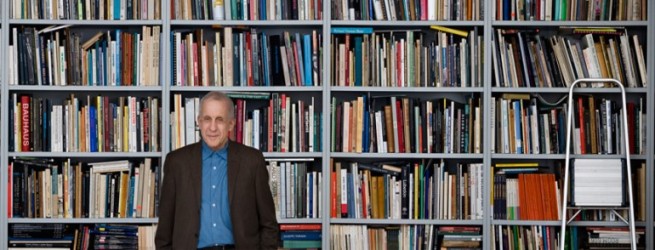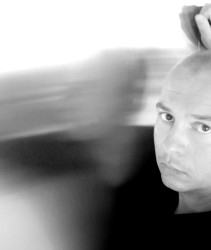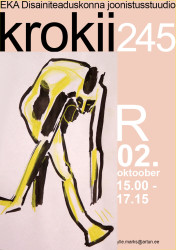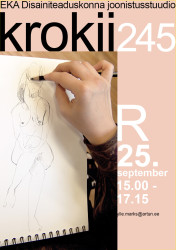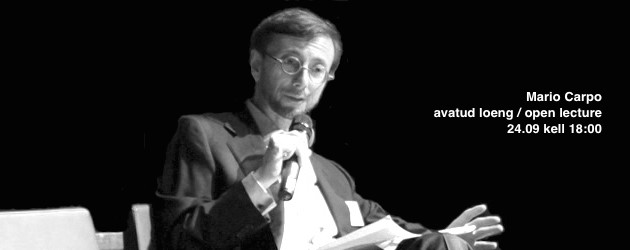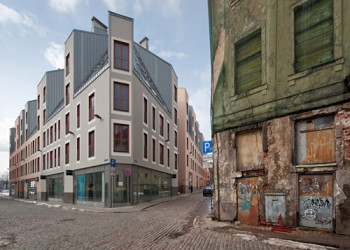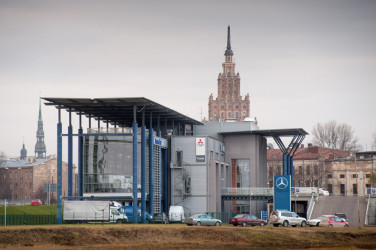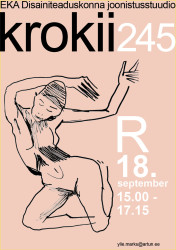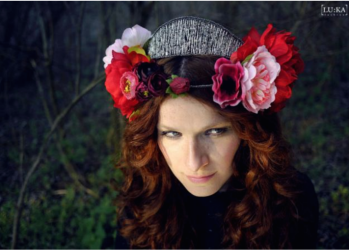Academic Affairs OfficeAccessory DesignAnimationArchitecture and Urban DesignArt EducationCenter for Flat TechnologiesCeramicsCultural Heritage and ConservationDepartmentsDesign and Technology FuturesDoctoral SchoolDrawingFacilities and WorkshopsFaculty of ArchitectureFaculty of Art and CultureFaculty of DesignFaculty of Fine ArtsFashion DesignFinancial DepartmentGalleryGlass ArtGraphic ArtGraphic DesignInstallation and SculptureInstitute of Art History and Visual CultureInternational OfficeIT OfficeJewellery and BlacksmithingLandscape ArchitectureLibraryLinnaehitus @enMaking SpaceNew MediaOffice of the RectorateOpen AcademyPaintingPerforming ArtsPhotographyProduct DesignRectorateResearch and Development OfficeScenographySupport UnitsTextile DesignUncategorizedUrban PlanningUrban Studies
Prof Kenneth Frampton open lecture on October 14th
14.10.2015
Prof Kenneth Frampton open lecture on October 14th
Institute of Art History and Visual Culture
Estonian Academy of Arts, Institute of Art History is delighted to present a public lecture of Prof Kenneth Frampton (Columbia University, New York) on Wednesday, October 14th 6PM at the Museum of Estonian Architecture.
Kenneth Frampton is an architect and architectural historian whose Modern Architecture. A Critical History from 1980, currently available in its fourth, significantly updated edition, has become one of the most canonical accounts of 20th century architecture. With remarkably broad scope, Kenneth Frampton introduced to the Western-centered discourse of modern architecture developments by the Russian avant-garde, Alvar Aalto and Scandinavian modernism, experimentations in colonial contexts as well as contemporary developments on the global scale. Besides architecture history, Prof Frampton has been a prolific commentator on architecture of our own age. Having moved from Great Britain to the United States in 1965, Kenneth Frampton started teaching firstly in Princeton University and from 1972 onwards in Columbia, forming the most innovative circle of architectural theorists of the time together with Peter Eisenman, Manfredo Tafuri, Rem Koolhaas, Diana Agrest ja Anthony Vidler. The magazine Oppositions, established at Columbia in 1973, became the leading platform for innovative architectural thought, aiming at introducing critical theory to the discussions on architectural practice and culture in the wider sense. Frampton’s own positions have been informed by Hannah Arendt’s social critique as well as Martin Heidegger’s conceptions of locality, thus he has always emphasized the social responsibility of architectural production as well as the specificities of context, aiming to resist the tendency to view buildings as representations or commodity. The 1983 essay Towards a Critical Regionalism: Six points for an architecture of resistance, pleading for a critical locality as a countermeasure against global homogenization and scenographic architecture, retains its relevance even today. These principles continue to inform Prof Frampton’s recent publications including monographic volumes on Alvaro Siza (2000), Le Corbusier (2001), Tadao Ando (2003), and five North American architects (2012).
The open lectures of the Institute of Art History are supported by the Estonian Cultural Endowment.
Professor Kenneth Frampton’s public lecture is organized in co-operation with Aalto University Helsinki.
Photo: Jeff Barnett-Winsby, 2007
Posted by Ingrid Ruudi — Permalink
Prof Kenneth Frampton open lecture on October 14th
Wednesday 14 October, 2015
Institute of Art History and Visual Culture
Estonian Academy of Arts, Institute of Art History is delighted to present a public lecture of Prof Kenneth Frampton (Columbia University, New York) on Wednesday, October 14th 6PM at the Museum of Estonian Architecture.
Kenneth Frampton is an architect and architectural historian whose Modern Architecture. A Critical History from 1980, currently available in its fourth, significantly updated edition, has become one of the most canonical accounts of 20th century architecture. With remarkably broad scope, Kenneth Frampton introduced to the Western-centered discourse of modern architecture developments by the Russian avant-garde, Alvar Aalto and Scandinavian modernism, experimentations in colonial contexts as well as contemporary developments on the global scale. Besides architecture history, Prof Frampton has been a prolific commentator on architecture of our own age. Having moved from Great Britain to the United States in 1965, Kenneth Frampton started teaching firstly in Princeton University and from 1972 onwards in Columbia, forming the most innovative circle of architectural theorists of the time together with Peter Eisenman, Manfredo Tafuri, Rem Koolhaas, Diana Agrest ja Anthony Vidler. The magazine Oppositions, established at Columbia in 1973, became the leading platform for innovative architectural thought, aiming at introducing critical theory to the discussions on architectural practice and culture in the wider sense. Frampton’s own positions have been informed by Hannah Arendt’s social critique as well as Martin Heidegger’s conceptions of locality, thus he has always emphasized the social responsibility of architectural production as well as the specificities of context, aiming to resist the tendency to view buildings as representations or commodity. The 1983 essay Towards a Critical Regionalism: Six points for an architecture of resistance, pleading for a critical locality as a countermeasure against global homogenization and scenographic architecture, retains its relevance even today. These principles continue to inform Prof Frampton’s recent publications including monographic volumes on Alvaro Siza (2000), Le Corbusier (2001), Tadao Ando (2003), and five North American architects (2012).
The open lectures of the Institute of Art History are supported by the Estonian Cultural Endowment.
Professor Kenneth Frampton’s public lecture is organized in co-operation with Aalto University Helsinki.
Photo: Jeff Barnett-Winsby, 2007
Posted by Ingrid Ruudi — Permalink
25.11.2015 — 26.11.2015
EKSIG 2015: Tangible means – experiential knowledge through materials 25-26 November 2015
Tekstiilidisain
EKSIG 2015: Tangible means – experiential knowledge through materials
25-26 November 2015
International Conference 2015 of the DRS Special Interest Group on Experiential Knowledge at Design School Kolding & University of Southern Denmark.
REGISTRATION OPEN!
EKSIG 2015 will address the theme of “Tangible means – experiential knowledge through materials”. It will be convened by the DRS Special Interest Group on Experiential Knowledge (EKSIG), and hosted by Design School Kolding and University of Southern Denmark.
PLEASE NOTICE: EARLY BIRD FEE IS DUE ON 25 OCTOBER!
CONFIRMED KEYNOTE SPEAKERS
Professor Lene Tanggaard (University of Aalborg, DK)
Professor Carole Collet (Central saint Martins, University of the Arts, UK)
Dr Elvin Karana (Delft University of Technology, NL)
We expect to launch the full program medio October.
REGISTRATION OPEN NOW AT:
http://experientialknowledge.org.uk/fees_2015.html
EKSIG 2015 aims to provide a forum for debate about materials as a means for knowledge generation by professionals and academic researchers, exploring the role and relationship of generating and evaluating new and existing knowledge in the creative disciplines and beyond.
In recent years many creative disciplines have shifted focus from what is produced to why it is produced and how it is used. This includes a growing interest for combining craft traditions with design and other related issues such as sustainability. As early as 1983 Schön defined designing “as a conversation with the materials of a situation” (Schön 1983: 78) and the designer as a maker of things even though it is acknowledged that the concept of design can be broader than ‘making things’. Also in the 1980s Manzini (1989: 17) pointed out a need for further development of cognitive tools and cultural references in order to catch up with the technical and scientific development of materials. Recently Karana et al. (2014) have expressed a need to study not only the functional but also the experiential side of materials. Thus, material knowledge is not only about ‘scientific’ facts such as functional and technical properties. It also encompasses personal, experiential, cultural, emotional, environmental and social aspects. In many disciplines, materials pervade all parts of practice, from the processes to the creation of artefacts and/or other kinds of physical manifestations and the interpretation through other professionals, such as curators, critics, historians etc.
With this conference, we wish to explore different ways in which experiential knowledge through materials can be given more appropriate consideration within the framework of research. This may include for example investigations into the nature, aims, validity, evaluation and/or necessity of different modes of communication and exchange.
Organisers: Nithikul Nimkulrat (Estonian Academy of Arts, Estonia), Kristina Niedderer (University of Wolverhampton, UK) and Anne Louise Bang (Design School Kolding, Denmark)
Posted by Solveig Jahnke — Permalink
EKSIG 2015: Tangible means – experiential knowledge through materials 25-26 November 2015
Wednesday 25 November, 2015 — Thursday 26 November, 2015
Tekstiilidisain
EKSIG 2015: Tangible means – experiential knowledge through materials
25-26 November 2015
International Conference 2015 of the DRS Special Interest Group on Experiential Knowledge at Design School Kolding & University of Southern Denmark.
REGISTRATION OPEN!
EKSIG 2015 will address the theme of “Tangible means – experiential knowledge through materials”. It will be convened by the DRS Special Interest Group on Experiential Knowledge (EKSIG), and hosted by Design School Kolding and University of Southern Denmark.
PLEASE NOTICE: EARLY BIRD FEE IS DUE ON 25 OCTOBER!
CONFIRMED KEYNOTE SPEAKERS
Professor Lene Tanggaard (University of Aalborg, DK)
Professor Carole Collet (Central saint Martins, University of the Arts, UK)
Dr Elvin Karana (Delft University of Technology, NL)
We expect to launch the full program medio October.
REGISTRATION OPEN NOW AT:
http://experientialknowledge.org.uk/fees_2015.html
EKSIG 2015 aims to provide a forum for debate about materials as a means for knowledge generation by professionals and academic researchers, exploring the role and relationship of generating and evaluating new and existing knowledge in the creative disciplines and beyond.
In recent years many creative disciplines have shifted focus from what is produced to why it is produced and how it is used. This includes a growing interest for combining craft traditions with design and other related issues such as sustainability. As early as 1983 Schön defined designing “as a conversation with the materials of a situation” (Schön 1983: 78) and the designer as a maker of things even though it is acknowledged that the concept of design can be broader than ‘making things’. Also in the 1980s Manzini (1989: 17) pointed out a need for further development of cognitive tools and cultural references in order to catch up with the technical and scientific development of materials. Recently Karana et al. (2014) have expressed a need to study not only the functional but also the experiential side of materials. Thus, material knowledge is not only about ‘scientific’ facts such as functional and technical properties. It also encompasses personal, experiential, cultural, emotional, environmental and social aspects. In many disciplines, materials pervade all parts of practice, from the processes to the creation of artefacts and/or other kinds of physical manifestations and the interpretation through other professionals, such as curators, critics, historians etc.
With this conference, we wish to explore different ways in which experiential knowledge through materials can be given more appropriate consideration within the framework of research. This may include for example investigations into the nature, aims, validity, evaluation and/or necessity of different modes of communication and exchange.
Organisers: Nithikul Nimkulrat (Estonian Academy of Arts, Estonia), Kristina Niedderer (University of Wolverhampton, UK) and Anne Louise Bang (Design School Kolding, Denmark)
Posted by Solveig Jahnke — Permalink
08.10.2015
Marjan Colletti open lecture
Faculty of Architecture
Estonian Academy of Arts Faculty of Architecture “Open Lecture Series”
Kanuti Gildi Saal (Pikk 20, Tallinn)
Marjan Colletti (1972) is an Italian architect, scientist and theorist. He graduated from Innsbruck University, where he is the head of the Institute of Experimental Architecture. He acquired a PhD at the Bartlett School of Architecture at University College London, where he is a doctor level professor, director of computing and holds his own studio. He has been teaching in multiple universities in Asia, Europe and America and his writings on design research theories have been extensively published. In addition he has edited the 80th anniversary issue of Architectural Design named Exuberance, that dealt with digital virtuosity in contemporary architecture. He has curated tens of exhibitions and participated at more, multiple Venice Architecture Biennales among others. He is a founder and partner of the London based architecture office marcosandmarjan.
At the Open Lecture Series well-known architects, theoreticians, critics and urbanists from all around the globe give talks to offer fresh perspectives on architecture, design, urban development and critical thought.
The lectures are open to all students and professionals in the fields of architecture, urbanism and other spatial studies, as well as to the broader circle of those interested in the future of our living environment. The lectures are held in English and they are free of charge.
The lecture series is supported by the Estonian Cultural Endowment.
Posted by Anu Piirisild — Permalink
Marjan Colletti open lecture
Thursday 08 October, 2015
Faculty of Architecture
Estonian Academy of Arts Faculty of Architecture “Open Lecture Series”
Kanuti Gildi Saal (Pikk 20, Tallinn)
Marjan Colletti (1972) is an Italian architect, scientist and theorist. He graduated from Innsbruck University, where he is the head of the Institute of Experimental Architecture. He acquired a PhD at the Bartlett School of Architecture at University College London, where he is a doctor level professor, director of computing and holds his own studio. He has been teaching in multiple universities in Asia, Europe and America and his writings on design research theories have been extensively published. In addition he has edited the 80th anniversary issue of Architectural Design named Exuberance, that dealt with digital virtuosity in contemporary architecture. He has curated tens of exhibitions and participated at more, multiple Venice Architecture Biennales among others. He is a founder and partner of the London based architecture office marcosandmarjan.
At the Open Lecture Series well-known architects, theoreticians, critics and urbanists from all around the globe give talks to offer fresh perspectives on architecture, design, urban development and critical thought.
The lectures are open to all students and professionals in the fields of architecture, urbanism and other spatial studies, as well as to the broader circle of those interested in the future of our living environment. The lectures are held in English and they are free of charge.
The lecture series is supported by the Estonian Cultural Endowment.
Posted by Anu Piirisild — Permalink
02.10.2015
Croquis.
Drawing
Posted by Ülle Marks — Permalink
Croquis.
Friday 02 October, 2015
Drawing
Posted by Ülle Marks — Permalink
25.09.2015
Croquis.
Disainiteaduskond
Posted by Ülle Marks — Permalink
Croquis.
Friday 25 September, 2015
Disainiteaduskond
Posted by Ülle Marks — Permalink
24.09.2015
OPEN LECTURE SERIES: – MARIO CARPO (LONDON)
Arhitektuuriteaduskond
Estonian Academy of Arts Faculty of Architecture “Open Lecture Series”
24.09 Mario Carpo (London)
Mario Carpo is an architectural historian and critic, currently the inaugural Reyner Banham Professor of Architectural History and Theory at the Bartlett School of Architecture. Mario Carpo’s research and publications focus on the relationship between architectural theory, cultural history, and the history of media and information technology.
Mario Carpo graduated from the University of Florence in 1983 with a degree in architectural history. He was a doctoral researcher at the European University Institute from 1984 to 1987, then an Assistant Professor at the University of Geneva. In 1993 Carpo received tenure in France, where he was first assigned to the École d’Architecture de Saint-Etienne, then to the École d’Architecture de Paris-La Villette. He has been a Professor at the Georgia Institute of Technology since 2009, and Vincent Scully Visiting Professor of Architectural History at Yale University since 2010.
http://www.bartlett.ucl.ac.uk/architecture
At the Open Lecture Series well-known architects, theoreticians, critics and urbanists from all around the globe give talks to offer fresh perspectives on architecture, design, urban development and critical thought.
The lectures are open to all students and professionals in the fields of architecture, urbanism and other spatial studies, as well as to the broader circle of those interested in the future of our living environment. The lectures are held in English and they are free of charge.
The lecture series is supported by the Estonian Cultural Endowment.
Posted by Anu Piirisild — Permalink
OPEN LECTURE SERIES: – MARIO CARPO (LONDON)
Thursday 24 September, 2015
Arhitektuuriteaduskond
Estonian Academy of Arts Faculty of Architecture “Open Lecture Series”
24.09 Mario Carpo (London)
Mario Carpo is an architectural historian and critic, currently the inaugural Reyner Banham Professor of Architectural History and Theory at the Bartlett School of Architecture. Mario Carpo’s research and publications focus on the relationship between architectural theory, cultural history, and the history of media and information technology.
Mario Carpo graduated from the University of Florence in 1983 with a degree in architectural history. He was a doctoral researcher at the European University Institute from 1984 to 1987, then an Assistant Professor at the University of Geneva. In 1993 Carpo received tenure in France, where he was first assigned to the École d’Architecture de Saint-Etienne, then to the École d’Architecture de Paris-La Villette. He has been a Professor at the Georgia Institute of Technology since 2009, and Vincent Scully Visiting Professor of Architectural History at Yale University since 2010.
http://www.bartlett.ucl.ac.uk/architecture
At the Open Lecture Series well-known architects, theoreticians, critics and urbanists from all around the globe give talks to offer fresh perspectives on architecture, design, urban development and critical thought.
The lectures are open to all students and professionals in the fields of architecture, urbanism and other spatial studies, as well as to the broader circle of those interested in the future of our living environment. The lectures are held in English and they are free of charge.
The lecture series is supported by the Estonian Cultural Endowment.
Posted by Anu Piirisild — Permalink
18.09.2015 — 30.09.2015
Live feed from the conference “Onward from Creative Economy?”
Live feed from the conference “Onward from Creative Economy?”
Friday 18 September, 2015 — Wednesday 30 September, 2015
17.09.2015
Seminar: Architecture as a Dialogue. New Approaches towards Transformation of the Architectural Heritage between Riga and Tallinn
Arhitektuuriteaduskond
17.sept 16:00-21:00 @ TAB-Club, Kultuurikatel, Põhja pst 27a
As part of Tallinn Architecture Biennale (TAB), the seminar aims to discuss the architecture as a process and as an outcome of complex and multilayered economic, social, cultural and political dialogue due to the impact of different regulations and restrictions, as well as other important circumstances.
The seminar will end with an informal part accompanying sound perfomance by Rachael Melanson (UK).
Participation is free of charge.
See more information below, on Facebook or TAB webpage.
————-
The cities within the Baltic Sea Region are currently undergoing large scale changes, which are mainly related to economic growth, immigration and emigration, ecological and environmental issues, mass tourism, threat of war and economic sanctions among neighboring counties, etc. It is important to ascertain how contemporary architecture and built environment can help us to facilitate and accommodate these changes and how these changes affect historical urban environment and architecture.
Cultural, economic and social ‘regeneration’ have become key words, especially after the global financial crisis, which severely affected the economy of the Baltic States. Due to the financial crisis, the transformation of urban environment and architecture has experienced various new trends. When it comes to Riga, after the financial crisis a large number of residential buildings, office complexes and former factories remain vacant. These are the main conditions which determine the need of contemporary architects to shift from the construction of new buildings to the adaption of existing buildings and complexes of the urban environment, taking into account the new functions of the buildings, as well as the needs of the users.
It is exactly the work on historical development and cultural heritage which has helped contemporary Latvian and Estonian architects to earn recognition on a regional level. The large number of projects carried out counts as proof that new architecture can be combined with old architecture in very different ways. Such projects reveal the differences between the Estonian and Latvian attitude and approach towards both the historical and contemporary substance.
Both – Riga and Tallinn – share a lot in common. For example, the same geopolitical situation, political history or the status of a small-nation capital, etc. At the same time when it comes to their mentality, building traditions or even the origins of foreign investment, these capitals can be considered as very different.
The main aim of the seminar is to outline the different approaches in the design of contemporary architecture and the diverse attitudes towards the architectural heritage in Riga and Tallinn, as well as to distinguish the causes and preconditions of such differences. The discussion will attempt to reveal the connection between the contemporary architecture and the historic urban environment. Special emphasis will be put on the policy of the conservation of cultural heritage as well as building regulations which determine the formation and development of contemporary architecture.
SPEAKERS
Inga Karlštrēma (Latvian Academy of Fine Arts, “New urban typologies- Unesco World heritage zone- Riga city centre” (Exhibition 9 Conditions of Riga))
Viesturs Celmiņš (social anthropologist, Department of Social Anthropology, University of Latvia), “Modernist Architecture and Imaginative Presencing.”
Jaanus Juss (“Transformation of former industrial sites- Telliskivi Creative City”)
Maroš Krivy (Urban Studies at the Faculty of Architecture, Estonian Academy of Arts)- “From factory to culture factory (and back):demolition, preservation, regeneration, maintenance.”)
Artis Zvirgzdiņš (architecture blog a4d.lv “Upcycling in Riga”)
Dagmar Jäger (Tallinn University of Technology, “Reuse of Difficult Heritage sites. Modernist heritage in former GDR”)
CURATOR
Oskars Redbergs is a Latvian architect, educator and curator. His main research focus is on the transformations of urban landscape of post socialist cities. He studied Architecture and Urban planning at the Riga Technical University (Latvia), Danish Institute for Study Abroad (DIS), The Royal Danish Academy of Fine arts – School of Architecture (Denmark), The Staatliche Hochschule der bildenden Künste (Staedelschule) Frankfurt’s Architecture Class (Germany).
Oskars Redbergs is a founder of The Riga School of Architecture and for the last 5 years he has been a Dean and a Lecturer of Faculty of Architecture and Design at RISEBA University in Riga.
Since 2009 he has been closely collaborating with the Swedish Institute and Fargfabriken in Stockholm. Currently he is working on his doctoral research at Brandenburgische Technische Universität, Germany.
He is a member of the board of the Latvian Association of Architects, MT15 forum and Megaphone Publishers. He is a curator of European Cultural Days of the European Central Bank (ECB) – Latvia, 2013. He is an author of various articles as well as editor of books “Mūsdienu kultūras stāvokļi / Conditions for Contemporary Culture. Riga” and “9 Conditions of Riga: Regeneration and Transformation of the City – Urban Environment and Architecture”.
SUPPORTERS
Embassy of Latvia in Estonia; State Culture Capital Foundation (SCCF); LIVE RIGA (The Riga Tourism Development Bureau Foundation); Riga Municipal Agency “Riga City Architect’s Office”; The Association of Culture Institutions of Riga City Council; Megaphone Publishers; mT15. Foundation for Interdisciplinary Cooperation
ORGANIZERS
Curator: Oskars Redbergs
Project coordinator: Inga Karlštrēma
Concept: mT15. Foundation for Interdisciplinary Cooperation
Implementation: Megaphone Publishers
The seminar is jointly organized by the mT15. Foundation for Interdisciplinary Cooperation and Riga City Architect’s Office. For more information please contact Inga Karlštrēma (inga.karlstrema(at)inbox.lv), + 371 26364044 and Oskars Redbergs (redbergs(at)hotmail.com), + 371 29581841
WITH SPECIAL THANKS TO
His Excellency ambassador Juris Bone (Embassy of Latvia in Estonia); Zenta Ļakša (DHM, Counsellor); Agita Ikauniece (Latvian Cultural days of ECB); Zanda Ķergalve (The Association of Culture Institutions of Riga City Council); Marten Kaevats (TAB15); Rebecca Kontus (TAB15); Maria Derlõš (TAB CLUB15); Solveig Jahnke (Estonian Academy of Arts); Tauri Tuvikene (Tallinn University)
The discussion forum “RIGA TALKS” is an integral part of the exhibition „9 Conditions of Riga” and along with the exhibition offers a series of seminars that brings together thinkers and makers in order to discuss challenges and opportunities, which the cities of the Baltic Sea Region are facing today. Earlier in 2013, two seminars were organized in Frankfurt am Main: “Re-industrialization and Urban Regeneration in Europe between Riga, Frankfurt and Warsaw” (Deutsches Architekturmuseum (DAM)) and “Riga until 1914 as a Role Model for the Contemporary European Urban Culture of 21st Century” (Goethe University, House of Finance).
The contribution for this year’s Tallinn’s Architecture Biennale (TAB CLUB) programme is a seminar “Architecture as a Dialogue. New Approaches towards Transformation of the Architectural Heritage between Riga and Tallinn”.
Posted by Solveig Jahnke — Permalink
Seminar: Architecture as a Dialogue. New Approaches towards Transformation of the Architectural Heritage between Riga and Tallinn
Thursday 17 September, 2015
Arhitektuuriteaduskond
17.sept 16:00-21:00 @ TAB-Club, Kultuurikatel, Põhja pst 27a
As part of Tallinn Architecture Biennale (TAB), the seminar aims to discuss the architecture as a process and as an outcome of complex and multilayered economic, social, cultural and political dialogue due to the impact of different regulations and restrictions, as well as other important circumstances.
The seminar will end with an informal part accompanying sound perfomance by Rachael Melanson (UK).
Participation is free of charge.
See more information below, on Facebook or TAB webpage.
————-
The cities within the Baltic Sea Region are currently undergoing large scale changes, which are mainly related to economic growth, immigration and emigration, ecological and environmental issues, mass tourism, threat of war and economic sanctions among neighboring counties, etc. It is important to ascertain how contemporary architecture and built environment can help us to facilitate and accommodate these changes and how these changes affect historical urban environment and architecture.
Cultural, economic and social ‘regeneration’ have become key words, especially after the global financial crisis, which severely affected the economy of the Baltic States. Due to the financial crisis, the transformation of urban environment and architecture has experienced various new trends. When it comes to Riga, after the financial crisis a large number of residential buildings, office complexes and former factories remain vacant. These are the main conditions which determine the need of contemporary architects to shift from the construction of new buildings to the adaption of existing buildings and complexes of the urban environment, taking into account the new functions of the buildings, as well as the needs of the users.
It is exactly the work on historical development and cultural heritage which has helped contemporary Latvian and Estonian architects to earn recognition on a regional level. The large number of projects carried out counts as proof that new architecture can be combined with old architecture in very different ways. Such projects reveal the differences between the Estonian and Latvian attitude and approach towards both the historical and contemporary substance.
Both – Riga and Tallinn – share a lot in common. For example, the same geopolitical situation, political history or the status of a small-nation capital, etc. At the same time when it comes to their mentality, building traditions or even the origins of foreign investment, these capitals can be considered as very different.
The main aim of the seminar is to outline the different approaches in the design of contemporary architecture and the diverse attitudes towards the architectural heritage in Riga and Tallinn, as well as to distinguish the causes and preconditions of such differences. The discussion will attempt to reveal the connection between the contemporary architecture and the historic urban environment. Special emphasis will be put on the policy of the conservation of cultural heritage as well as building regulations which determine the formation and development of contemporary architecture.
SPEAKERS
Inga Karlštrēma (Latvian Academy of Fine Arts, “New urban typologies- Unesco World heritage zone- Riga city centre” (Exhibition 9 Conditions of Riga))
Viesturs Celmiņš (social anthropologist, Department of Social Anthropology, University of Latvia), “Modernist Architecture and Imaginative Presencing.”
Jaanus Juss (“Transformation of former industrial sites- Telliskivi Creative City”)
Maroš Krivy (Urban Studies at the Faculty of Architecture, Estonian Academy of Arts)- “From factory to culture factory (and back):demolition, preservation, regeneration, maintenance.”)
Artis Zvirgzdiņš (architecture blog a4d.lv “Upcycling in Riga”)
Dagmar Jäger (Tallinn University of Technology, “Reuse of Difficult Heritage sites. Modernist heritage in former GDR”)
CURATOR
Oskars Redbergs is a Latvian architect, educator and curator. His main research focus is on the transformations of urban landscape of post socialist cities. He studied Architecture and Urban planning at the Riga Technical University (Latvia), Danish Institute for Study Abroad (DIS), The Royal Danish Academy of Fine arts – School of Architecture (Denmark), The Staatliche Hochschule der bildenden Künste (Staedelschule) Frankfurt’s Architecture Class (Germany).
Oskars Redbergs is a founder of The Riga School of Architecture and for the last 5 years he has been a Dean and a Lecturer of Faculty of Architecture and Design at RISEBA University in Riga.
Since 2009 he has been closely collaborating with the Swedish Institute and Fargfabriken in Stockholm. Currently he is working on his doctoral research at Brandenburgische Technische Universität, Germany.
He is a member of the board of the Latvian Association of Architects, MT15 forum and Megaphone Publishers. He is a curator of European Cultural Days of the European Central Bank (ECB) – Latvia, 2013. He is an author of various articles as well as editor of books “Mūsdienu kultūras stāvokļi / Conditions for Contemporary Culture. Riga” and “9 Conditions of Riga: Regeneration and Transformation of the City – Urban Environment and Architecture”.
SUPPORTERS
Embassy of Latvia in Estonia; State Culture Capital Foundation (SCCF); LIVE RIGA (The Riga Tourism Development Bureau Foundation); Riga Municipal Agency “Riga City Architect’s Office”; The Association of Culture Institutions of Riga City Council; Megaphone Publishers; mT15. Foundation for Interdisciplinary Cooperation
ORGANIZERS
Curator: Oskars Redbergs
Project coordinator: Inga Karlštrēma
Concept: mT15. Foundation for Interdisciplinary Cooperation
Implementation: Megaphone Publishers
The seminar is jointly organized by the mT15. Foundation for Interdisciplinary Cooperation and Riga City Architect’s Office. For more information please contact Inga Karlštrēma (inga.karlstrema(at)inbox.lv), + 371 26364044 and Oskars Redbergs (redbergs(at)hotmail.com), + 371 29581841
WITH SPECIAL THANKS TO
His Excellency ambassador Juris Bone (Embassy of Latvia in Estonia); Zenta Ļakša (DHM, Counsellor); Agita Ikauniece (Latvian Cultural days of ECB); Zanda Ķergalve (The Association of Culture Institutions of Riga City Council); Marten Kaevats (TAB15); Rebecca Kontus (TAB15); Maria Derlõš (TAB CLUB15); Solveig Jahnke (Estonian Academy of Arts); Tauri Tuvikene (Tallinn University)
The discussion forum “RIGA TALKS” is an integral part of the exhibition „9 Conditions of Riga” and along with the exhibition offers a series of seminars that brings together thinkers and makers in order to discuss challenges and opportunities, which the cities of the Baltic Sea Region are facing today. Earlier in 2013, two seminars were organized in Frankfurt am Main: “Re-industrialization and Urban Regeneration in Europe between Riga, Frankfurt and Warsaw” (Deutsches Architekturmuseum (DAM)) and “Riga until 1914 as a Role Model for the Contemporary European Urban Culture of 21st Century” (Goethe University, House of Finance).
The contribution for this year’s Tallinn’s Architecture Biennale (TAB CLUB) programme is a seminar “Architecture as a Dialogue. New Approaches towards Transformation of the Architectural Heritage between Riga and Tallinn”.
Posted by Solveig Jahnke — Permalink
18.09.2015
Croquis.
Disainiteaduskond
Posted by Ülle Marks — Permalink
Croquis.
Friday 18 September, 2015
Disainiteaduskond
Posted by Ülle Marks — Permalink
21.09.2015
Lúdmila Žoldáková’s talk “The Current Situation in Fashion in Slovakia and Slavic Mythology as a Source of Inspiration”
Moedisain
Lúdmila Žoldáková will deliver her talk “The Current Situation in Fashion in Slovakia and Slavic Mythology as a Source of Inspiration” on Monday, 21 September at 5 p.m at Estonian Academy of Arts (Estonia pst 7, IV floor, room 440a). The talk will be held in English. Q&A session after the screening.
In the beginning of March Tallinn Creative Hub announced with K.A.I.R – Košice Artist in Residence an exchange project for creative professionals for staying two months in Estonia and Slovakia. Since August an Estonian product designer Johanna Tammsalu has been in Košice and since the beginning of September a Slovakian fashion designer Lúdmila Žoldáková has been in Tallinn.
Talk “The Current Situation in Fashion in Slovakia and Slavic Mythology as a Source of Inspiration”
Many have been focused on paganism and European mythologies in the past few years. People try to dig deep in their roots and see what was there before Christianity took over. With some cultures it is easy to find information, while some are almost unknown. Lúdmila has been interested in Slavic mythology and this interest has taken forms also in her design.
Currently she is working on her fabric design patterns inspired by Slavic mythology and its female figures. The talk will give a short introduction to Slavic belief system — Lúdmila will talk more in detail about the seven mythical figures she has chosen for her project. Also, she will talk about her visual approaches to the topic and plans for the future. The talk will also cover current situation in fashion in Slovakia — the most interesting creative professionals, facts and ongoing trends.
Lúdmila Žoldáková is a Slovak illustrator and fashion designer. Since 2008 she has been running her own fashion brand LU:KA known for her feminine and colourful style. Lúdmila’s recent fashion projects has been inspired by history, traditions, mythology, books and fairy tales. Lúdmila is committed to ethical business values such as animal rights, local production, recycling and up-cycling. In the creative process Lúdmila is looking for freedom – “I love to be creative in the process of creation, not planning every single detail. I want to be carried away by colors, stories, materials and different techniques.” Lúdmila will stay in Estonia till 30 October.
Free entrance. All are welcome!
The talk is organised in collaboration with Tallinn Creative Hub and Estonian Academy of Arts.
The exchange project is supported by Ministry of Culture of the Slovak Republic.
Lisainfo:
Tallinna Kultuurikatla Loovharidusprogrammi projektijuht Dagmar Kase / dagmar.kase@kultuurikatel.ee /+372 58 874 921 / www.kultuurikatel.ee
Eesti Kunstiakadeemia moedisaini osakonna dotsent Marit Ahven / marit.ahven@artun.ee / www.artun.ee
Posted by Solveig Jahnke — Permalink
Lúdmila Žoldáková’s talk “The Current Situation in Fashion in Slovakia and Slavic Mythology as a Source of Inspiration”
Monday 21 September, 2015
Moedisain
Lúdmila Žoldáková will deliver her talk “The Current Situation in Fashion in Slovakia and Slavic Mythology as a Source of Inspiration” on Monday, 21 September at 5 p.m at Estonian Academy of Arts (Estonia pst 7, IV floor, room 440a). The talk will be held in English. Q&A session after the screening.
In the beginning of March Tallinn Creative Hub announced with K.A.I.R – Košice Artist in Residence an exchange project for creative professionals for staying two months in Estonia and Slovakia. Since August an Estonian product designer Johanna Tammsalu has been in Košice and since the beginning of September a Slovakian fashion designer Lúdmila Žoldáková has been in Tallinn.
Talk “The Current Situation in Fashion in Slovakia and Slavic Mythology as a Source of Inspiration”
Many have been focused on paganism and European mythologies in the past few years. People try to dig deep in their roots and see what was there before Christianity took over. With some cultures it is easy to find information, while some are almost unknown. Lúdmila has been interested in Slavic mythology and this interest has taken forms also in her design.
Currently she is working on her fabric design patterns inspired by Slavic mythology and its female figures. The talk will give a short introduction to Slavic belief system — Lúdmila will talk more in detail about the seven mythical figures she has chosen for her project. Also, she will talk about her visual approaches to the topic and plans for the future. The talk will also cover current situation in fashion in Slovakia — the most interesting creative professionals, facts and ongoing trends.
Lúdmila Žoldáková is a Slovak illustrator and fashion designer. Since 2008 she has been running her own fashion brand LU:KA known for her feminine and colourful style. Lúdmila’s recent fashion projects has been inspired by history, traditions, mythology, books and fairy tales. Lúdmila is committed to ethical business values such as animal rights, local production, recycling and up-cycling. In the creative process Lúdmila is looking for freedom – “I love to be creative in the process of creation, not planning every single detail. I want to be carried away by colors, stories, materials and different techniques.” Lúdmila will stay in Estonia till 30 October.
Free entrance. All are welcome!
The talk is organised in collaboration with Tallinn Creative Hub and Estonian Academy of Arts.
The exchange project is supported by Ministry of Culture of the Slovak Republic.
Lisainfo:
Tallinna Kultuurikatla Loovharidusprogrammi projektijuht Dagmar Kase / dagmar.kase@kultuurikatel.ee /+372 58 874 921 / www.kultuurikatel.ee
Eesti Kunstiakadeemia moedisaini osakonna dotsent Marit Ahven / marit.ahven@artun.ee / www.artun.ee
Posted by Solveig Jahnke — Permalink

